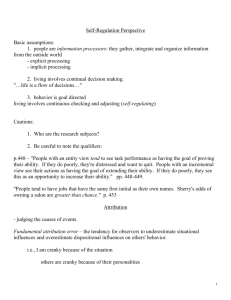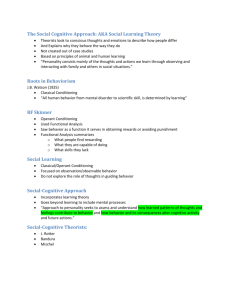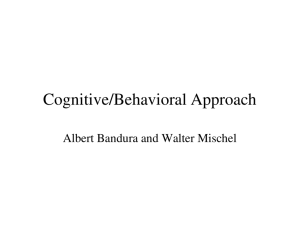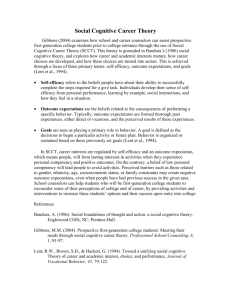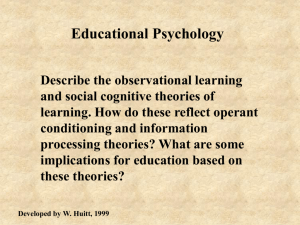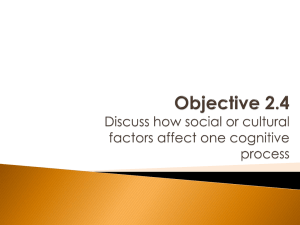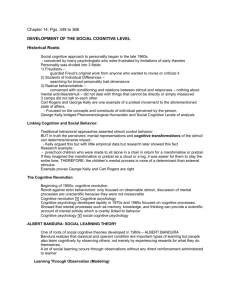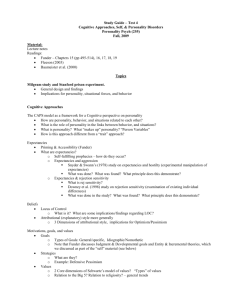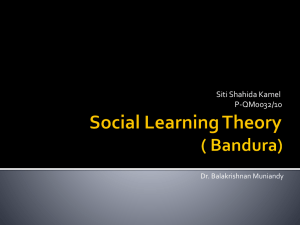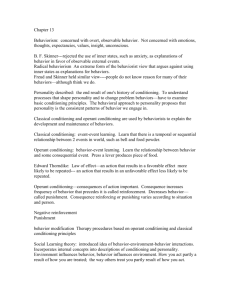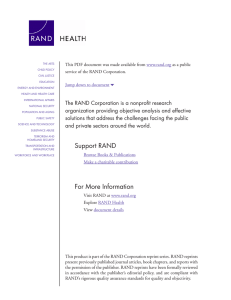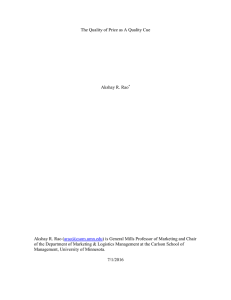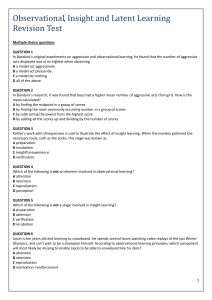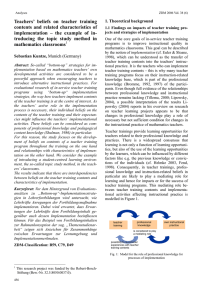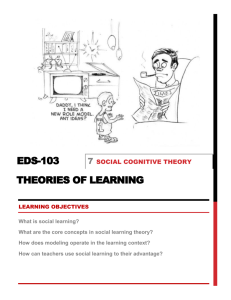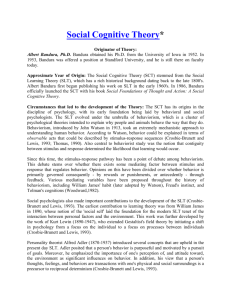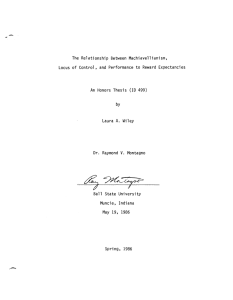Social Cognitive Theory
advertisement
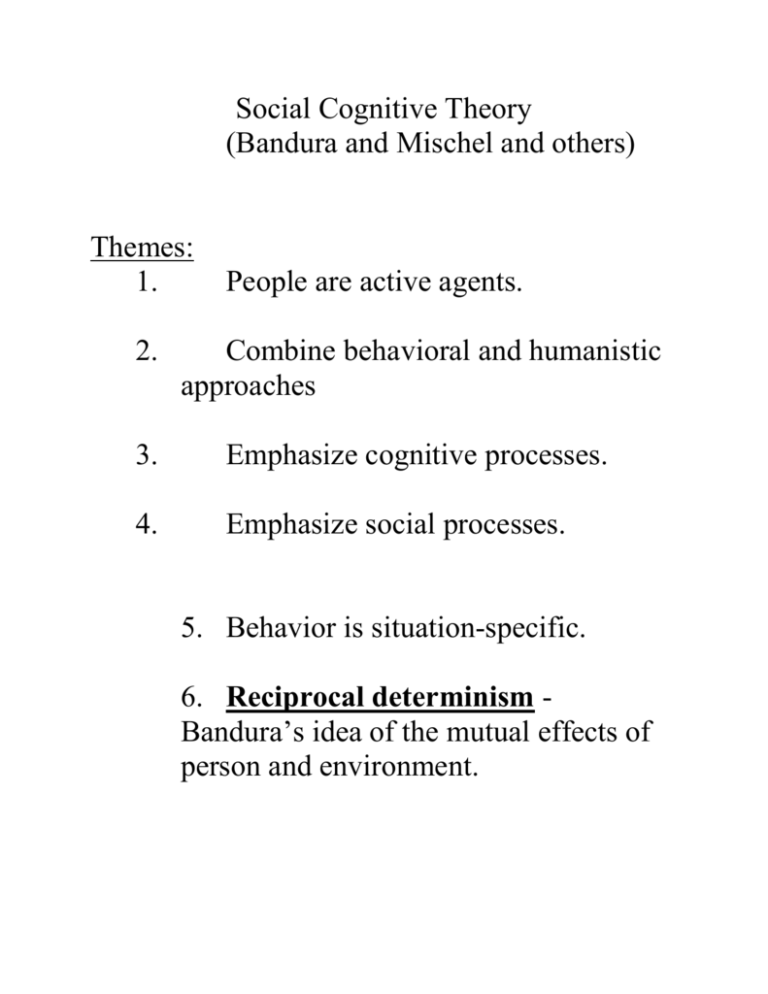
Social Cognitive Theory (Bandura and Mischel and others) Themes: 1. People are active agents. 2. Combine behavioral and humanistic approaches 3. Emphasize cognitive processes. 4. Emphasize social processes. 5. Behavior is situation-specific. 6. Reciprocal determinism Bandura’s idea of the mutual effects of person and environment. Julian Rotter’s locus of control behavior depends on: 1. outcome expectancy expectancies 2. reinforcement value 6 core psychological needs: 1. recognition/status 2. dominance 3. independence 4. protection/dependency 5. love and affection 6. physical comfort generalized expectancies specific expectancies Locus of control: a. Internal locus of control b. External locus of control These are generalized expectancies. Shoda, Mischel, & Wright (1994) • observations of children at camp • Found considerable differences in behaviors across situations behavioral signatures Structure 1. Expectancies (beliefs) 2. self-system A. efficacy expectancy = selfefficacy • influence goals • effort and persistence • mood • coping 3. Goals - desired future events that motivate the person 4. Competencies/skills Processes • • • anticipated consequences internal standards self-reinforcement Growth and Development Observational learning vicarious learning modeling 4 factors that impact observational learning: 1. attention for encoding 2. retention 3. production 4. performance Famous Bobo Doll studies (Bandura, 1965; 1977; 1986) acquisition vs. performance difference: Learning delay of gratification: Bandura & Mischel, 1965 In-class assignment: Given the evidence concerning observational learning, what would one expect to be the effects of watching television on children? On adults? Which characteristics of television might be important? Why? Is it likely that altruistic behavior would be modeled as readily as aggressive behavior? Why or why not? Modeling of aggression 1. observational learning 2. promotes belief that aggression is appropriate 3. desensitizes observers E.g. Study positive modeling examples Major new developments in social cognitive theory: 1. feelings/emotions. “Hot” emotions 2. Dynamics of personality are organized 3. Mischel - cognitive affective personality system (CAPS) Psychopathology Role of dysfunctional expectancies Anxiety and self-efficacy Depression and self-efficacy Therapy/Change: Modeling and Guided Mastery
